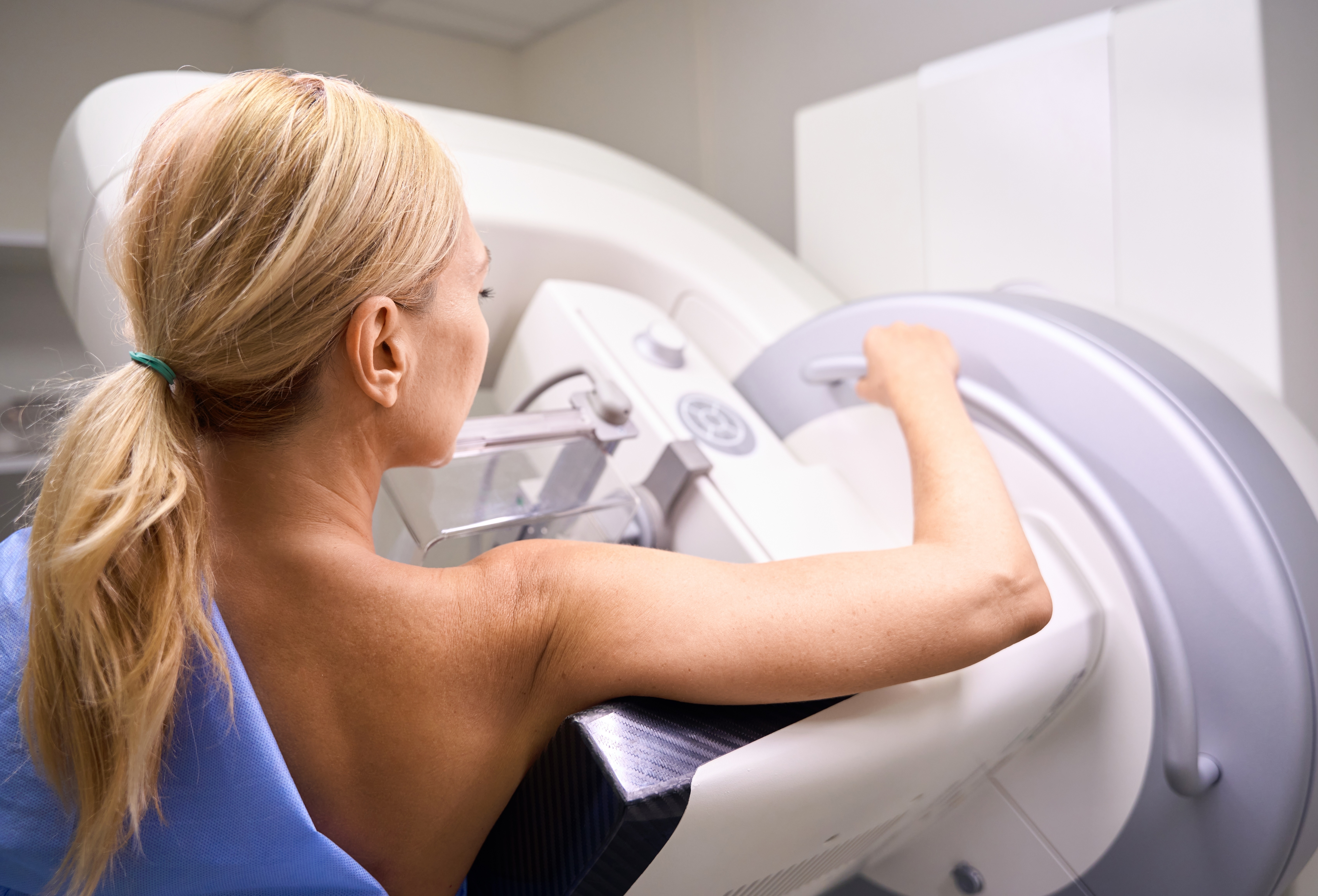Published: October 15, 2024
Do I Really Need a Mammogram? Understanding Breast Cancer Detection and Screening
Breast cancer affects about one in eight women in the United States. Dr. Marina Feldman, a board-certified radiologist specializing in breast imaging at Elliot Breast Health Center, recently discussed the importance of mammograms in a Your Wellness Solution podcast episode. Here’s what you need to know about mammograms, breast cancer detection, and ways to lower your risk.
What is a mammogram and why is it important?
A mammogram is an X-ray of the breast used to detect cancer early, often before symptoms appear. “Mammography is the gold standard for screening the population at large,” says Dr. Feldman. This means it’s the best tool available for breast cancer detection in its early stages when it’s most treatable.
The benefits of mammograms are clear. Regular screening can dramatically reduce the risk of dying from breast cancer. “Cancer death rates have declined 40% between 1990 and 2020,” Dr. Feldman explains. "And this progress is largely attributed to early detection through mammography."
Dr. Feldman emphasizes that catching breast cancer early is critical. She says, “We want to find it when it's still in its infancy stage when the cancer cells are the size of chalk dust before it is allowed to develop into a lump that a woman herself can feel and brings to the attention of the doctor. Early detection could be the difference between a woman moving on with her life and thriving after the diagnosis or possibly losing her life to it.”
When should you start getting mammograms? 
The recommendation from Dr. Feldman, the American College of Radiology, the Society of Breast Imagers, and the American Society of Breast Surgeons is that women should start yearly mammograms at age 40. Dr. Feldman explains that “sixteen percent of all diagnosed breast cancers are diagnosed in women in their 40s.” These cancers can be more aggressive, which makes early detection even more critical.
For women with a family history of breast cancer, it’s recommended to start screening even earlier. Dr. Feldman says, “For those with a family history, the recommendation is to start mammograms 10 years prior to the age at which a first-degree relative was diagnosed.” She also advises that anyone with a family history consider genetic counseling to understand their risk better and develop a tailored screening plan.
How can you lower your risk of breast cancer?
While mammograms are vital for early breast cancer detection, Dr. Feldman shares several ways women can reduce their risk of developing breast cancer through lifestyle choices:
Eat a healthy diet: Leafy greens, red peppers, and blueberries help fight harmful molecules in the body.
Stay active: “Whatever your activity of choice is, it’s better than no activity,” says Dr. Feldman. Regular exercise—whether it’s walking, jogging, yoga, or strength training—can help lower your risk.
Limit alcohol: According to Dr. Feldman, “There’s no minimal intake of alcohol that’s considered to be safe with respect to cancer.”
Avoid smoking: Smoking is a well-known risk factor for breast cancer. Seek help if you are ready to quit.
Perform self-breast exams: Besides scheduling mammograms, it’s important to be vigilant about breast health through regular self-breast exams. This helps women become familiar with their breasts and catch any unusual changes early.
Is it safe to get a mammogram while pregnant or breastfeeding?
Yes! Dr. Feldman reassures women that mammograms are safe during pregnancy and breastfeeding. The American College of Radiology and the Society of Breast Imaging recommend not delaying screening during these life stages. "Delaying screening mammograms for the duration of pregnancy, and then should she choose to nurse the baby, delaying for the duration of breastfeeding, would be very harmful to their health," Dr. Feldman explains. Since many women have children later in life—sometimes into their 40s—delaying screening for several years could increase the risk of undetected breast cancer.
Do you really need a mammogram?
If you're still wondering, “Do I need a mammogram?” the answer is yes—especially once you reach 40. Breast cancer screening saves lives.
Don’t wait. Schedule your mammogram today.
For more information about mammograms and breast cancer detection, visit Elliot Breast Health Center or listen to Dr. Feldman’s full podcast.
Dr. Marina Feldman joined the Elliot Breast Health Center in July 2011. She is a graduate of Brandeis University, where she earned dual Bachelor of Arts degrees in economics and biology. She earned her MD and MBA in Healthcare Management at Tufts University School of Medicine. Dr. Feldman completed her internship at Caritas Carney Hospital in Boston, her residency at Maimonides Medical Center in Brooklyn, and her fellowship in breast imaging at Northwestern Memorial Hospital in Chicago.
Dr. Feldman is a member of the American College of Radiology Committee on Breast Imaging Reporting and Data System – Ultrasound (ACR BI-RADS-US). In addition, she is a contributing author to BI-RADS-US, Second Edition. Dr. Feldman has served on the Breast Imaging Section of the ACR Economics and Health Policy Committee and is currently serving on the Board of Governors of the American Board of Radiology.
